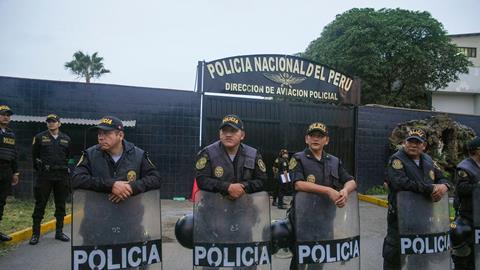The arrest and prosecution of arbitrators in Peru for their alleged involvement in corrupt activities has sent shockwaves through the international arbitration community. Odebrecht, a Brazilian construction conglomerate notorious for running one of the largest cross-border bribery schemes in modern history, sits at the centre of numerous corruption scandals involving major infrastructure projects across Latin America.
On 7 August, Peruvian prosecutors brought organised crime and bribery charges against a group of arbitrators, alleging that they had accepted covert payments (sometimes a fixed percentage of the eventual award) to deliver decisions that shifted more than $250m of project risk from Odebrecht to the Peruvian state. Five arbitrators were publicly named and reports suggest that up to 29 individuals in total have been charged. (It is noted that these are charges only at this stage and are yet to be proven.) The charges relate to 17 arbitrations concerning five major highway projects between 2011 and 2016, with prosecutors seeking prison terms ranging from nine to 25 years.
The Odebrecht affair exposes fragilities in arbitral integrity, underscoring risks that practitioners worldwide should not overlook, and should actively work to prevent.

A playbook of systemic corruption
The Odebrecht files expose an orchestrated scheme that turned arbitration into a vehicle for concealing corruption. Odebrecht would first secure public contracts on competitive terms. It would then renegotiate costs, inflating them. Finally, it would turn to arbitration to cloak these increases via awards that offered a veneer of legitimacy.
Between 2003 and 2016, Odebrecht prevailed in 34 out of 41 arbitrations, obtaining more than $250m in its favour. Bribes to arbitrators were channelled through offshore accounts and disguised as ‘success fees’ or extraordinary remuneration.
The scandal first came to light in relation to one Peruvian arbitrator, revealed by El País in 2017 to have received illicit payments in 16 arbitrations. He pleaded guilty and agreed to cooperate as a protected witness. His case triggered wider investigations into other arbitrators, many of whom had received repeat appointments in Odebrecht-related disputes.
The warning signs were there all along: repeat appointments of the same arbitrators, unusually high fees, and remuneration far above institutional norms. Arguably, had parties insisted on greater transparency and accountability at the time, much of the fallout now engulfing Peru’s arbitration system might have been avoided.
Safeguarding arbitral integrity
Arbitration and the enforcement of arbitral awards are mechanisms that, when used as intended, provide an efficient means of resolving disputes and avoiding the protracted litigation that is common in some jurisdictions.
As much as corruption must be confronted and the arbitration community should stand together in advancing this cause, history shows that the fight against corruption has not always been pursued in good faith. In some instances, it has been weaponised for political gain, with devastating consequences for individuals and institutions alike. Some have seen the events in 2019 through these lenses.
In 2019, Peruvian courts ordered the preventive detention of 14 arbitrators, treating otherwise legitimate conduct (such as fee adjustments and pre-appointment meetings) as evidence of crime. At the time, a commentator praised the professional reputation of several of the jailed arbitrators in the Peruvian market, noting that some charges appeared to conflate ordinary arbitral tasks with criminal acts. The then-president of the ICC International Court of Arbitration even wrote to the Peruvian authorities to raise concerns about the detentions. A number of the detentions were in fact subsequently reversed by the Peruvian Court of Appeals.

Regardless of whether the events in Peru in 2019 represent a genuine combat against corruption or, instead, the instrumentalisation of that fight for political ends, the episode underscores the fragility of arbitral integrity when criminal procedure collides with arbitral confidentiality. Once corruption allegations arise, they can become an entry point for aggressive action that disrupts the confidentiality and the broader legitimacy of the proceedings.
Concerns about corruption must be taken seriously and met with vigilance, but they should not obscure the resilience of the arbitral framework or the safeguards it already provides against impropriety. The enforcement regime, in particular, can operate as a potential safety net. While courts have traditionally set a high bar for refusing to enforce awards tainted by illegality, the 2023 Nigeria v P&ID decision, where an $11bn award was set aside after bribery came to light, signals a new judicial readiness to unravel awards compromised by corruption. The prosecutions in Peru will likely embolden award debtors elsewhere to pursue public-policy challenges with renewed confidence.
Regulators have likewise taken action, and their proactive engagement with corruption represents a positive and welcome development. Peru’s Emergency Decree 020-2020 requires institutional arbitration for most state contracts, as institutional arbitration is often perceived as offering greater reliability than ad hoc proceedings because of its oversight mechanisms. Emergency Decree 020-2020 further mandates the publication of awards and tightens controls over interim relief.
The establishment of RENACE, a national arbitrator registry, introduces new transparency in appointments and sanctions. In 2025, Peru’s Ministry of Justice also established a multisectoral working group to strengthen arbitration in the country, signalling a continuing commitment to institutional reform.
While these measures are intended to reinforce trust in the system, they inevitably recalibrate the balance between transparency, oversight, and party autonomy, narrowing the scope for ad hoc proceedings and unrestricted party choice in appointments.
Practical guidance for counsel

The lesson for arbitration users is clear: risks must be identified at an early stage and proactively managed (and mitigated, where applicable) throughout the process.
Identify red flags. Identify suspicious indicators such as outcome-linked fees or repeat appointments; validate them through document requests or financial tracing; and assess the evidence carefully, creating an audit trail that can withstand scrutiny in set-aside or enforcement proceedings.
Anticipate corruption risks in engagement documents. Arbitrators should be required to disclose all prior appointments involving the parties or their counsel, and to confirm that their fees are not tied to outcomes. Agreements should allow for institutional intervention as needed.
Proactively manage the evidence. With today’s forensic tools, regulators and counterparties can more easily trace financial flows across borders. Parties should prepare privileged assessments whenever corruption is alleged, carefully documenting investigative steps even if evidence remains inconclusive.
Prepare for enforcement from the outset. Pleadings and witness statements should reflect a sensitivity to public policy challenges, ensuring that the record shows how red flags were raised and resolved. In situations where arbitral proceedings intersect with criminal investigations, carefully managed disclosures can balance statutory obligations with the preservation of arbitral confidentiality.
Conclusion: from crisis management to risk engineering
This case clearly shows that the arbitration community should employ more systemic vigilance. Due diligence on arbitrator backgrounds and fee arrangements should be standard practice. Additional institutional safeguards, such as registries and award publication (albeit suitably anonymised), should also be explored by arbitration users. The enforceability of awards, and the integrity of international arbitration itself, depend on nothing less.































